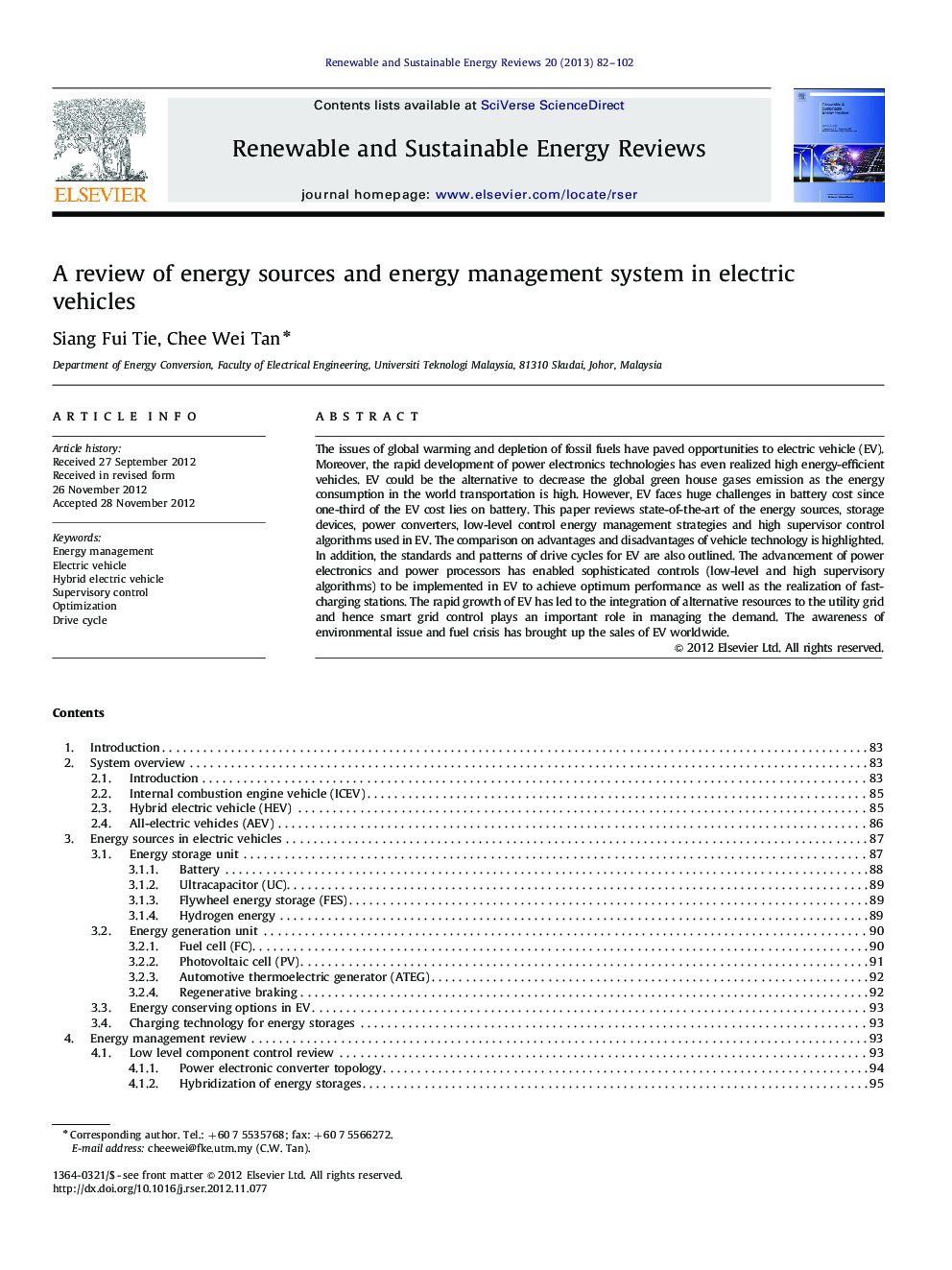| Article ID | Journal | Published Year | Pages | File Type |
|---|---|---|---|---|
| 8122164 | Renewable and Sustainable Energy Reviews | 2013 | 21 Pages |
Abstract
The issues of global warming and depletion of fossil fuels have paved opportunities to electric vehicle (EV). Moreover, the rapid development of power electronics technologies has even realized high energy-efficient vehicles. EV could be the alternative to decrease the global green house gases emission as the energy consumption in the world transportation is high. However, EV faces huge challenges in battery cost since one-third of the EV cost lies on battery. This paper reviews state-of-the-art of the energy sources, storage devices, power converters, low-level control energy management strategies and high supervisor control algorithms used in EV. The comparison on advantages and disadvantages of vehicle technology is highlighted. In addition, the standards and patterns of drive cycles for EV are also outlined. The advancement of power electronics and power processors has enabled sophisticated controls (low-level and high supervisory algorithms) to be implemented in EV to achieve optimum performance as well as the realization of fast-charging stations. The rapid growth of EV has led to the integration of alternative resources to the utility grid and hence smart grid control plays an important role in managing the demand. The awareness of environmental issue and fuel crisis has brought up the sales of EV worldwide.
Keywords
Related Topics
Physical Sciences and Engineering
Energy
Renewable Energy, Sustainability and the Environment
Authors
Siang Fui Tie, Chee Wei Tan,
